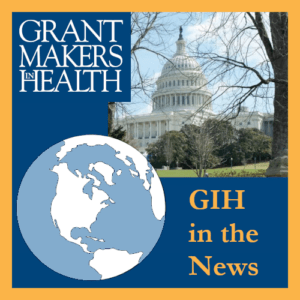Georgia Health Initiative: September 2025
A new report, “Progress Towards Vitality: A 10-Year Retrospective Analysis of Systems Focused Efforts to Improve Maternal Health in Georgia,” analyzes a subset of recommendations put forward by the Georgia Maternal Mortality Review Committee (MMRC) and the Georgia House Study Committee on Maternal Mortality to improve maternal mental health in the state.
Grantmakers In Health Announces 2025 Award Winners
Grantmakers In Health is pleased to announce Elizabeth Ripley of the Mat-Su Health Foundation in Alaska, as the 2025 recipient of the Terrance Keenan Leadership Award, and Jane Perkins of the National Health Law Program in Washington, DC, as the 2025 recipient of the Andy Hyman Award for Advocacy.
Elizabeth Ripley of the Mat-Su Health Foundation to Be Honored with the 2025 Terrance Keenan Leadership Award
Elizabeth Ripley, President and Chief Executive Officer of the Mat-Su Health Foundation in Alaska, will receive Grantmakers In Health’s 2025 Terrance Keenan Leadership Award.
Jane Perkins of the National Health Law Program to Be Honored with the Andy Hyman Award for Advocacy
Jane Perkins, Litigation Director of the National Health Law Program (NHeLP) in Washington, DC, will receive Grantmakers In Health’s 2025 Andy Hyman Award for Advocacy.
Standing Together in Perilous Times
GIH urges our Funding Partners and others in our community to join us in signing onto this public statement—we stand a better chance together than if we go it alone.









